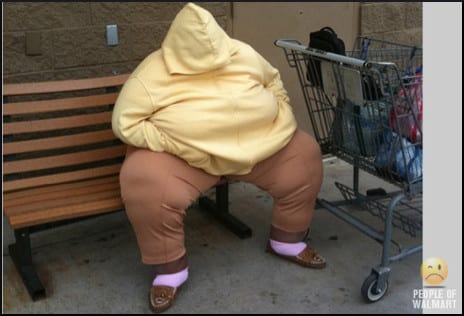Addiction guilt is one of the facets of Dr. Pretlow’s investigation of childhood obesity, and today we look at what several experts say about guilt, and the subtle differences between guilt and shame. These observations include an assertion that might seem shocking—that for an addict, guilt can be a healthy motivator toward recovery. Remember the anti-obesity billboards that caused so much controversy a couple of years ago in the state of Georgia? The University of Carolina’s Dr. Miriam Labbok said this about them:
While guilt and fear are motivators, they have to be meted out with the answer to the situation. The ads with the children do not offer help to them.
Tricia Greaves Nelson, writing about the hidden causes of overeating, says:
Emotional eaters are extremely sensitive. We feel deeply, so we’re very prone to feeling guilty, and therefore use food as a form of punishment because we feel bad about a lot of things and we just end up taking it out on ourselves.
Dr. Garret O’Connor of the Betty Ford Institute describes shame as malignant, depleting, and exhausting. It has no upside, but is pure destruction, a toxic emotion that urges a person to conceal the problem and shun treatment. What is the difference between guilt and shame? Researchers from the University at Buffalo’s Research Institute on Addictions and Virginia’s George Mason University aimed to find out. Guilt, they came to understand, can be a healthy kick-start.
Guilt is what makes an addict embrace a moment of clarity to see that their young children don’t deserve this kind of life or the brokenness that they have caused their family. This is when guilt can motivate to get someone into treatment for their substance abuse problem.
Brené Brown, who is really smart about shame and guilt, explained how they differ in her TED Talk. Shame is the feeling of never being good enough, and one of its favorite challenges is, “Who do you think you are?” Shame is focused on the self, an entity that feels immutable. But guilt focuses on behavior, and behavior can be changed. Brown capsulizes the difference:
Guilt: I’m sorry. I made a mistake.
Shame: I’m sorry. I am a mistake.
Last time, we mentioned how Dr. Pretlow’s most recent paper notes the difference in addiction guilt between boys and girls in his studies—the girls feel it more. This would come as no surprise to Brown, who says shame is “absolutely organized by gender.” She contends that for women, shame results from a web of conflicting and competing (and often, mutually exclusive) expectations about their identity. According to an old saying, a woman is supposed to be a lady in the drawing room, a magician in the kitchen, an angel in the nursery and a floozie in the bedroom. And nowadays, a competent employee at work. It’s a lot of hats to wear, and something is bound to go terribly wrong somewhere along the line.
But for men, shame only has one definition: being perceived as weak. Brown quotes research, done at Boston College, on the question of what a man needs to do in order to conform with male norms. In the United States, a man is supposed to hold the idea that work and status are the most important things, and he must always show emotional control—except when breaking out into natural male violence. A woman is supposed to be “nice, thin, modest and use all available resources for appearance.” No wonder they experience more guilt over food addiction! Brown sums it up:
Here’s what you need to know. Shame is highly, highly correlated with addiction, depression, violence, aggression, bullying, suicide, eating disorders. And here’s what you even need to know more. Guilt is inversely correlated with those things.
Brown suggests that the sharing of experience, as in support groups, is important because it grows empathy, which is the antidote to shame:
If you put shame in a Petri dish, it needs three things to grow exponentially: secrecy, silence and judgment. If you put the same amount of shame in a Petri dish and douse it with empathy, it can’t survive. The two most powerful words when we’re in struggle: me too.
******
Treatment of Child/Adolescent Obesity Using the Addiction Model: A Smartphone App Pilot Study will appear in the next print edition of the journal Childhood Obesity, and is already available online via Liebertpub.com.
Your responses and feedback are welcome!
Source: “’Stop Sugarcoating’ Child Obesity Ads Draw Controversy,” ABCNews.go.com, 12/02/12
Source: “The Hidden Causes of Overeating,” Hypesrus.com, 02/05/15
Source: “Guilt can be Healthy in Recovery but Shame is Toxic.” kleantreatmentcenters.com, 08/01/13
Source: “Listening to shame,” Ted.com, March 2012
Image by PeopleofWalmart.com


 FAQs and Media Requests:
FAQs and Media Requests: 











